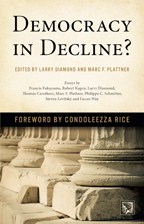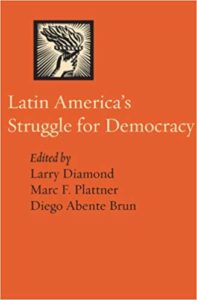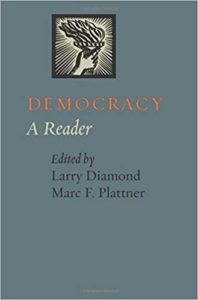October 2023, Volume 34, Issue 4
Democracy’s Surprising Resilience
Despite worry of an authoritarian resurgence, the vast majority of “third wave” democracies are enduring. Democracy, buoyed by economic growth and urbanization, is outperforming most people’s expectations or fears.




